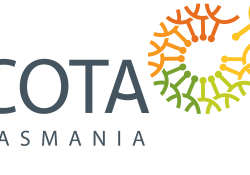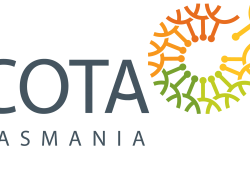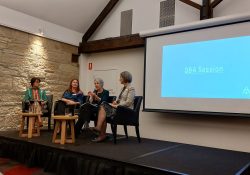Many Tasmanians will band together next month in statewide walks as part of World Elder Abuse Day to raise awareness of a growing issue within our communities. It’s therefore timely to focus on elder abuse, what it is, and why it’s so important to speak out and support those who may be suffering in silence.
Elder abuse is a serious issue that affects one in six older Australians living in our community every year. It is often perpetrated by an adult family member or friend. The most common types of elder abuse are psychological abuse and neglect, often followed by financial and physical, then in some cases sexual abuse.
The loss of trust, dignity, and self-esteem caused by elder abuse have a significant impact on the quality of life of older people, and it is essential to provide support and care to end the abuse and help them regain their sense of self-worth.
What is particularly disturbing is that older people often suffer in silence, feeling invisible and ignored. This makes it all the more important to raise awareness of the issue and encourage people to speak out against ageism, which can drive elder abuse.
WEAAD is an opportunity to do just that. Starting on June 15, Tasmanians will be taking part in statewide walks to highlight the issue and encourage people to seek help if they or someone they know is experiencing elder abuse. The annual walks against elder abuse are supported by the Tasmanian government and local councils, and they provide a platform for people to come together, raise awareness, and take action.
It’s important to understand that elder abuse is not just a problem for older people. It’s a societal issue that affects all of us across all walks of life, in business, in the community, in our homes, and can compound other forms of discrimination and injustice.
It’s also important to recognise that although elder abuse is never excusable, it is not always intentional. Sometimes, the abuse can be the result of a caregiver’s lack of knowledge or resources, rather than malicious intent. This is why education and raising awareness of the available support are so important.
By providing caregivers with the tools and resources they need to care for older people, we can help prevent some elder abuse from occurring in the first place.
One of the most effective ways to prevent elder abuse is to have open and honest conversations about the issue. By talking openly about elder abuse, we can help reduce the stigma surrounding the issue and encourage people to seek help when they need it.
That’s why events like the Tasmanian walks on a worldwide day that highlights abuse of older people help to shine the light on the issue and encourage conversations.
If you or someone you know is experiencing elder abuse, help is available. The Tasmanian Elder Abuse Helpline 1800 441 169 is a confidential service that can provide information on what elder abuse is and options for support. They can also refer people to free services such as Legal Aid’s Senior Assist and Relationships Australia Tasmania’s Elder Relationship Service.
It’s important to remember that no one deserves to be abused, no matter their age. We all have a responsibility to speak out against elder abuse and to ensure that older people in our community are treated with respect and dignity.
The Walks Against Elder Abuse will be held on June 15 in Hobart and Burnie, and June 16 in Launceston, with complimentary indoor refreshments awaiting at the end. We are encouraging Tasmanian communities to form groups to participate in the walks, raise awareness and encourage discussion.
Walk details: The Hobart walk will be held from 10am, on Thursday, June 15, starting in the Elizabeth Mall; The Burnie walk will be held from 10am, on Thursday, June 15, starting in Wilmot St, opposite the cinema; The Launceston walk will be held from 12.30pm, on Friday, June 16, starting at Civic Square.
For more information or to register contact admin@cotatas.org.au
Craig Chadwick is chief executive of COTA (Council on the Ageing) Tasmania.


